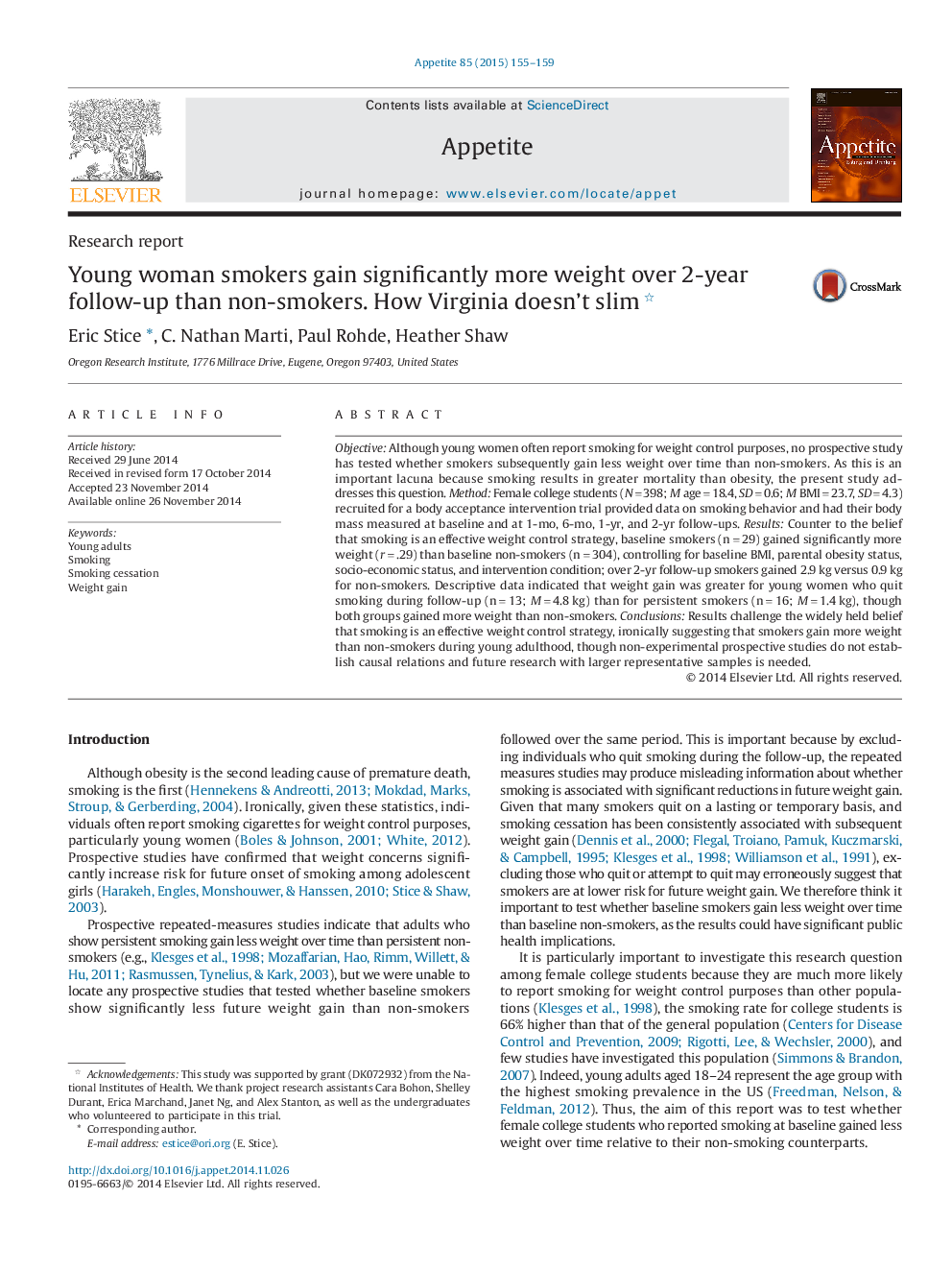| Article ID | Journal | Published Year | Pages | File Type |
|---|---|---|---|---|
| 7309493 | Appetite | 2015 | 5 Pages |
Abstract
Objective: Although young women often report smoking for weight control purposes, no prospective study has tested whether smokers subsequently gain less weight over time than non-smokers. As this is an important lacuna because smoking results in greater mortality than obesity, the present study addresses this question. Method: Female college students (Nâ=â398; M ageâ=â18.4, SDâ=0.6; M BMIâ=â23.7, SDâ=4.3) recruited for a body acceptance intervention trial provided data on smoking behavior and had their body mass measured at baseline and at 1-mo, 6-mo, 1-yr, and 2-yr follow-ups. Results: Counter to the belief that smoking is an effective weight control strategy, baseline smokers (nâ=â29) gained significantly more weight (râ=â.29) than baseline non-smokers (nâ=â304), controlling for baseline BMI, parental obesity status, socio-economic status, and intervention condition; over 2-yr follow-up smokers gained 2.9âkg versus 0.9âkg for non-smokers. Descriptive data indicated that weight gain was greater for young women who quit smoking during follow-up (nâ=â13; Mâ=â4.8âkg) than for persistent smokers (nâ=â16; Mâ=â1.4âkg), though both groups gained more weight than non-smokers. Conclusions: Results challenge the widely held belief that smoking is an effective weight control strategy, ironically suggesting that smokers gain more weight than non-smokers during young adulthood, though non-experimental prospective studies do not establish causal relations and future research with larger representative samples is needed.
Related Topics
Life Sciences
Agricultural and Biological Sciences
Food Science
Authors
Eric Stice, C. Nathan Marti, Paul Rohde, Heather Shaw,
